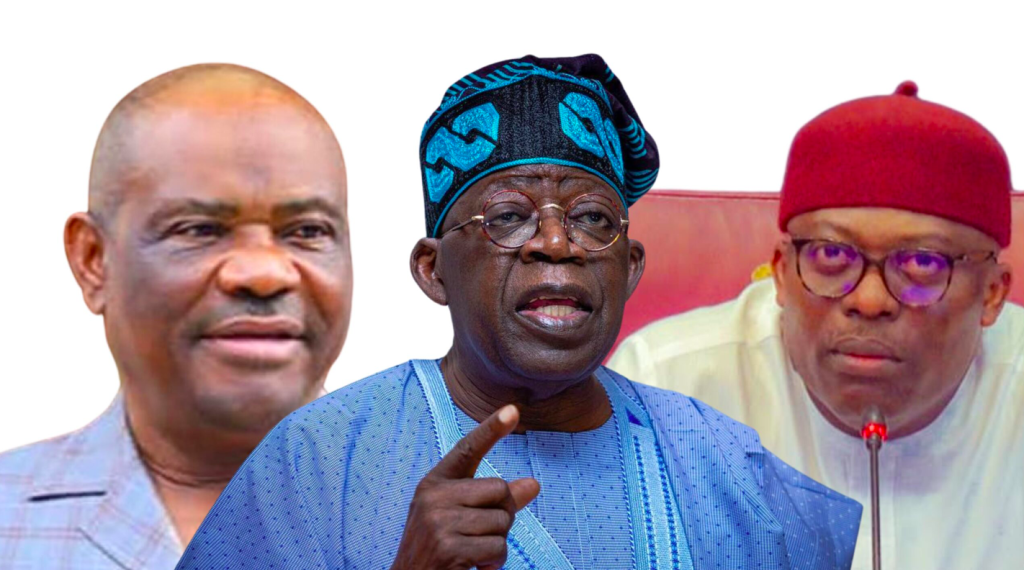
The political landscape of Nigeria has once again been marred by an act of executive high-handedness that reeks of despotism and a blatant disregard for democratic norms. The sacking of Rivers State Governor, Siminalayi Fubara, by President Bola Ahmed Tinubu is not just an isolated political event; it is a calculated assault on the principles of democracy, federalism, and the rule of law. This action, cloaked in the dubious guise of “national interest,” is a stark reminder of the dangers of unchecked executive power and the fragility of Nigeria’s democratic institutions.
A Shameless Undermining of Democratic Principles
Governor Fubara was elected by the people of Rivers State in a free and fair election. His mandate was granted by the electorate, not by the arbitrary decisions of a power-driven federal executive. By unilaterally removing him, President Tinubu has not only trampled on the will of the people but also established a perilous precedent that jeopardizes the very core of democracy.
The Nigerian Constitution lays out clear and unequivocal procedures for the removal of a governor, including impeachment by the state House of Assembly or judicial processes. These mechanisms are designed to ensure that the removal of an elected official is conducted transparently, accountably, and in line with the rule of law. President Tinubu’s actions, however, have blatantly disregarded these constitutional safeguards, replacing them with the unchecked exercise of executive authority.
This is not democracy; it is authoritarianism. If left unchallenged, we risk entering an era where the President can unseat any governor, legislator, or judge who dares to oppose him.
The Death of Federalism in Nigeria

Nigeria is a federation, or at least it is supposed to be. The essence of federalism is the division of powers between the federal and state governments, ensuring that each tier of government operates independently within its constitutional limits. The sacking of Governor Fubara is a direct attack on this principle. It reduces state governments to mere appendages of the federal executive, stripping them of their autonomy and ability to serve their people.
The people of Rivers State did not vote for President Tinubu to dictate who governs them. They voted for Governor Fubara, and their choice must be respected. By removing him, President Tinubu has not only disrespected the people of Rivers State but also set a dangerous precedent that could be used against other states in the future.
This is not just a Rivers State problem; it is a Nigerian problem. If state governments are reduced to mere puppets of the federal executive, the diversity and unique needs of our states will be stifled, and the very idea of federalism will be rendered meaningless. See The Dismissive Attitude Toward Sexual Abuse in Nigeria.
A Threat to the Rule of Law
The rule of law is the bedrock of any democratic society. It ensures that no one, not even the President, is above the law. The removal of Governor Fubara without due process is a blatant disregard for the rule of law. It undermines the judiciary, the legislature, and the democratic institutions that are meant to serve as checks and balances on executive power.
If we allow this action to stand unchallenged, we risk descending into a state of lawlessness where might makes right. This is not the Nigeria its founding fathers envisioned, nor is it the Nigeria that should be bequeathed to future generations.
The Complicity of the National Assembly
Where is the National Assembly in all of this? As the custodian of democracy, it is their duty to hold the executive accountable. Yet, we have seen nothing but deafening silence from our lawmakers. By failing to speak out against this unconstitutional act, they are complicit in the erosion of our democratic values.
Nigeria’s National Assembly must rise above partisan politics and defend the constitution they swore to uphold. The people of Nigeria are watching, and history will judge them for their actions—or lack thereof. The sacking of Governor Fubara is a dark chapter in Nigeria’s democratic history. It is a reminder of how fragile our democracy is and how easily it can be undermined by those in power.







